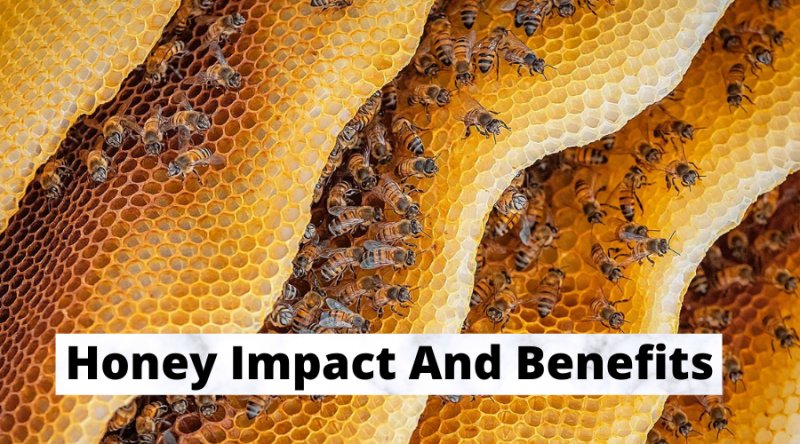Bees create Honey, which is a liquid sweetener. They return to the hive after gathering nectar from flowers and regurgitating it. The other bees then chew it till it turns into Honey. Bees collect Honey and store it in honeycombs, little waxy storage units. They fan it with their wings to dry it out. As a result of this process, it becomes stickier. Read about Impact And Benefits.
“Honey’s sweetness comes from its chemical makeup,” Iliac explains. “It’s made up of a variety of minerals as well as two simple sugars, glucose and fructose.”
There are various types of Honey.
In the USA,
There are around 300 different types of Honey. It can be found here: Raw Honey is Honey that has been obtained directly from the hive. It’s available here: Honey that has been collected directly from the hive is known as raw Honey. “Raw honey is the least processed and, therefore, has the most antioxidants,” Ilic adds. Honey is considered safe to eat in its raw form, except for children under one, who should avoid all Honey. Impact And Benefits of honey.
Pasteurized Honey
It has undergone a process to remove impurities and extend its shelf life. Ilic adds, “It can also be boosted with extra corn syrup or other sweeteners.” “Even though all honey begins naturally in the hive, not all honey sold in stores is the same.” Impact And Benefits of honey.
Honey’s Potential Health Benefits
Some individuals consider healthy honey food, even though it is low in nutrients. Many common claims regarding Honey have little or no evidence, yet research backs up some of the following:
Effects on Inflammation
Honey contains a lot of antioxidants, which might assist the body in reducing inflammation. Inflammation can cause several health problems like heart disease, cancer, and autoimmune disorders. Antioxidants in buckwheat honey were detected in blood plasma in one study, indicating that consuming Honey can boost antioxidant activity in the body.
Children’s Cough Relief
According to health experts, coughs and colds in young children should not be treated with over-the-counter drugs. Some parents may seek natural solutions. Two teaspoons of Honey reduced a child’s nightly cough and allowed them to sleep in one trial. On the other hand, doctors do not suggest this treatment for children under the age of one year.
Honey’s Potential Risks
For the most part, Honey is safe food, but it is not for everyone. Here are some of the risks of using Honey, particularly raw Honey:
Infants with Botulism
Children under the age of 12 months should not be given Honey. Dust particles in Honey may include spores of the bacterium that causes botulism. Many germs are resistant to infants, and they can become very sick.
Children’s coughing may be relieved by taking this supplement
In children, coughing is a common symptom of upper respiratory infections. These illnesses can cause problems with sleep and quality of life in both children and parents.
On the other hand, common cough treatments are not always effective and can have side effects. On the other hand, Honey may be an excellent alternative, as data suggests it is a beneficial therapy option.
According to a study of extensive research on Honey and cough in children, Honey appears to be more beneficial than diphenhydramine for cough symptoms. It may also help shorten the length of a cough. According to another study, it may also enhance sleep quality for children with coughs and their parents. Honey also has no negative side effects, unlike certain cough treatments.
Read More: The Nutrition Advice That Can Make Your Life Better

